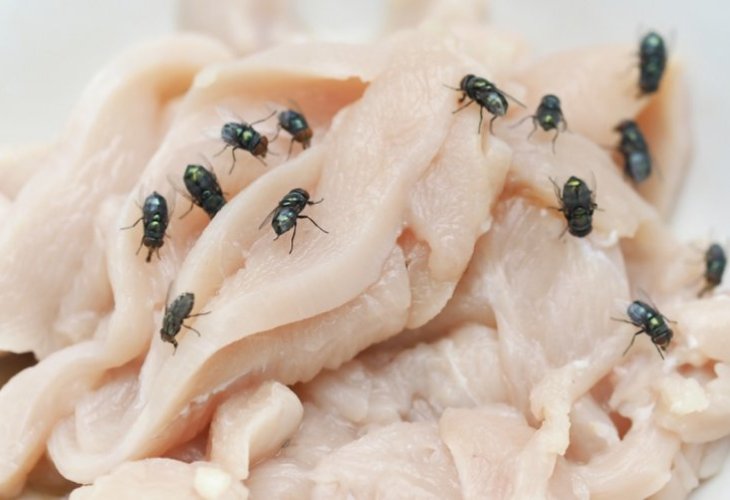Saw a Fly on Your Food? Experts Say There's Cause for Concern
Why is it dangerous to eat food where a flying insect has landed? Researchers claim there's indeed reason to worry. "A fly needs only a moment on your food to transfer bacteria of the most dangerous kinds," explained an expert.
 (Photo: shutterstock)
(Photo: shutterstock)Entomologist Ron Harrison noted in a conversation with the British Daily Mail website that flies can carry over 200 types of harmful bacteria. According to him, "flies are known as pests that transmit serious infectious diseases, and it's obviously better to avoid foods they have touched - even for a brief time."
Harrison further claims that since insects cannot chew food, they secrete enzymes that digest it before ingesting it.
Additionally, the Mayo Clinic medical research institute warns to keep your distance from these annoying insects. On the USA Today website, the institute's recommendations suggest that flies can transmit severe diseases like typhoid, cholera, and dysentery to food, leading to symptoms such as vomiting, diarrhea, nausea, fever, fatigue, and headaches. Dr. Jeff Scott, a lecturer in entomology at Cornell University, reiterated the recommendation, warning: "Flies have the ability to carry and transmit any type of disease-carrying microorganisms."
Conversely, Dr. Cameron Webb, a lecturer in medicine at the University of Sydney, emphasized in a comprehensive article he published that while there is a risk of disease transmission from flying creatures to your food, he believes, unlike his colleague Harrison, that the impact is significant only after several minutes on the food. "The longer the time passes, the greater the chance that the pathogens (bacteria) left by the flies will multiply on the food - during this time, the health risks increase," he said.

